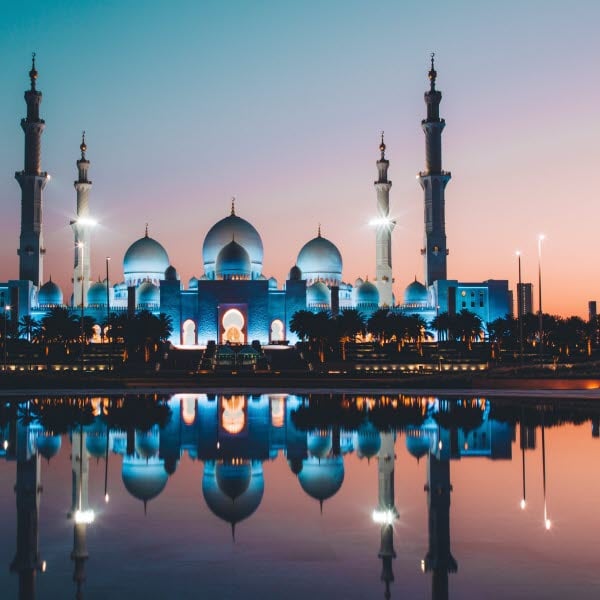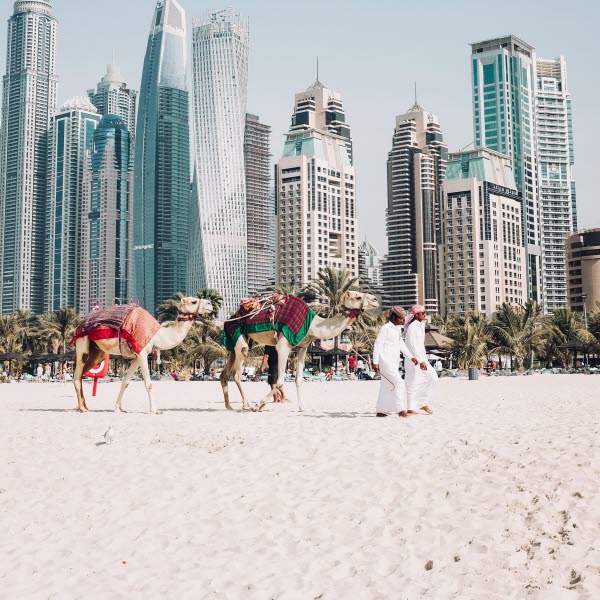In just a few decades, the UAE has evolved from one of the poorest countries in the region to one of the world’s richest. The country, and perhaps Dubai in particular, has received a lot of attention for spectacular projects, for instance the Burj Khalifa, the world’s tallest building.
Rapid growth and modernisation
The UAE has one of the world's largest oil reserves, 94 percent of which is located in the Emirate of Abu Dhabi. Thanks to the revenue from the oil industry, the country has experienced a rapid modernisation and is now one of the wealthiest countries on the planet. In addition to the oil revenues, the financial metropolis of Dubai is also a major driver for the economy. As you can read in the short interview below with our Trade & Invest commissioner, this rapid growth unfortunately has its downsides, especially when looking at sustainability and human rights.
Opportunities for Swedish companies
With over 200 companies directly or indirectly represented in the UAE, Sweden has a large presence in the country. Export to the UAE covers a wide range of industries, including iron, steel, automotive, telecommunication equipment and engineering products. The UAE is also an important hub for Swedish companies throughout the Middle East. The beneficial tax conditions throughout more than 30 economic free zones are a key driver for international companies to establish an office in the area.
How we can help
Business Sweden has had an office in Dubai since 2006, which acts as the main hub for the Middle East. We support Swedish businesses with our network and local expertise in the following countries: Egypt, Lebanon, Palestine, Jordan, Syria, Iraq, Kuwait, Qatar, Saudi Arabia, Bahrain, Yemen, Oman, Iran and United Arab Emirates.


Sara Radu
Trade Commissioner South AfricaWhat are the main advantages for expansion in the UAE?
The Middle Eastern countries are still classified as emerging markets. However, with their great natural resources and funds, almost all the countries have plans to diversify their economies, creating unique investment opportunities for Swedish companies. In addition, Swedish businesses have a good reputation in the region, giving them a head start. Countries in the wider region that are looking for best practices are eager to learn from companies and governments from abroad. The overall young population in the UAE also implies a high level of urbanisation and technical knowhow.
What are the risks and challenges companies may face in the UAE?
Due to the rather volatile economy, the business environment is not always entirely stable. Because of this, prices are sensitive and there is a lower emphasis on high-quality products and services. The business culture in the Middle East is rather tough, which is reflected for example in hard negotiations. Also expect to encounter time-consuming administrative processes with little transparency, which applies to both business and society. The lower priority for human rights and environmental issues can create some challenges when reaching out to potential stakeholders and partners. Identifying and building the right relationships is therefore very important.
Are there any cultural aspects to consider?
Hierarchy is much more important than in Sweden. So before meeting someone, make sure to do some research to address everyone with the correct title and the appropriate attitude and respect. This will allow to build a good relationship, which is key in the region. People are hard to reach by phone or mail, so a local presence in the market makes a big difference. In most Middle Eastern countries, the level of English is often good, but having Arabic-speaking employees or partners is always beneficial. For efficient sales processes, remember that Arabs like to see and experience a product. So, definitely bring brochures, leaflets, videos, or even a physical product to a meeting.












